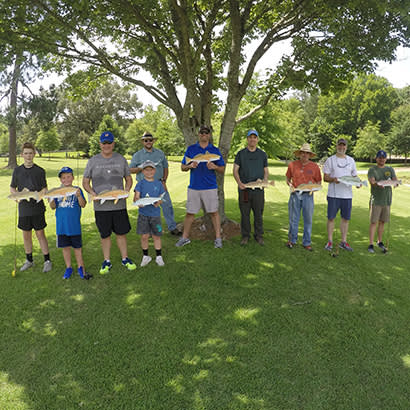
For an enhanced digital experience, read this story in the ezine.
As a result of the coronavirus (COVID-19) stay-at-home orders many parts of the country experienced last year, people of all ages and backgrounds found themselves longing to be outdoors and socializing with others. After all, one could argue that it is what we were created to do. As agencies begin to reopen and look at phasing in program opportunities, you may find yourself looking to “strike while the iron is hot,” as community members are looking for outdoor opportunities.
Outdoor programs in your community not only benefit participants’ health and wellness, but also benefit the health of the community through sharing a common experience with neighbors from other backgrounds. Moreover, outdoor programs also can benefit the health of the land. We live in an age where individuals are likely to know more about the Amazon rainforest from being taught about it in school than their local national forest or state park. As Richard Louv puts it in his book, Last Child in the Woods, “...People are unlikely to value what they cannot name.” The land benefits from people learning more about the resources surrounding the places they live and how to conserve and care for them.
What would it take to start an outdoor program that balances experience with education within your agency that might also be cash-strapped and facing budget challenges?
First, you will need to identify a staff member who is enthusiastic about the great outdoors. It is a wonderful asset to your community if your local agency employs someone with a background in biology or environmental science, but this is not a necessity. The reality is that few people have that background and presently work at Anytown, USA, Park and Recreation Department.
If you are wondering how someone with no formal biology education, who possesses only a layman’s knowledge of the outdoors, can develop meaningful outdoor programs for their community, partnerships are the answer. Consider the geographic location of your agency — what national or state park is located nearby? Do you have a U.S. Fish and Wildlife Service Refuge, U.S. Army Corps of Engineers, or national forest property nearby? At most of these agencies, you can find someone on staff who has an intimate knowledge of the land and the flora and fauna. These individuals are passionate about what they do (just as you and I are) and are more than likely happy to partner on a hike or workshop that opens up the nearby natural world to your community members.
Now, take an even closer look at the resources in your community. You may find nonprofit organizations or knowledgeable locals that could lead to valuable partnership opportunities. For example, for my agency — the Oxford (Mississippi) Park Commission — in addition to our relationship with the local agencies, we have been able to partner with our local Audubon Center for birding hikes, a local fishing club for a fly fishing and fly tying class, and a local native plant specialist to lead identification and environmental education hikes on public lands. Another important partnership we have is with the local university where we partner to use gear rental from their outdoor department. We have even partnered with the Army ROTC (Reserve Officers’ Training Corps) for a popular land navigation course that took place on local trails. If you do not have a nearby university, perhaps there is a nearby camp that may offer gear rental in the offseason or even a National Guard unit to offer land navigation or other workshops.
Another benefit to partnering is it takes the pressure off of the programmer to try to fit every learning opportunity into one program. In addition, it provides a variety of program opportunities to returning participants.
Nature can be found in any landscape, in any corner of the country. Likewise, our communities are full of people who are passionate to share their knowledge and love of nature with the greater community.
Jared Barkley, CPRP, is Program Director for Oxford (Mississippi) Park Commission.

